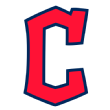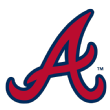6:02 am | October 5, 2018 | Go to Source | Author:
Who needs March Madness? We’ve got October awesomeness!
A quadruple-header of division series games that promises 10-plus hours of playoff action. There’s not much that can match that in any sport, any day of the year. Rejoice and enjoy!
The most important thing of the day: Did you read the first two paragraphs? What could be more important than four playoff games back-to-back-to-back-to-back? There’s Kluber-Verlander, the hottest hitter on the planet, Red Sox-Yankees and Kershaw against Atlanta’s young studs.
Now sit down and pass the peanuts.

ALDS Game 1: Cleveland Indians at Houston Astros

 Corey Kluber (20-7, 2.89 ERA) vs. Justin Verlander (16-9, 2.52 ERA), 2:05 p.m. ET, TBS
Corey Kluber (20-7, 2.89 ERA) vs. Justin Verlander (16-9, 2.52 ERA), 2:05 p.m. ET, TBS
The stakes: These are the two deepest rotations in the playoffs, but neither team wants to lose behind their No. 1 guy and give the opposition the advantage.
If the Indians win: This series could suddenly tip in Cleveland’s favor. With a series lead and Trevor Bauer and Carlos Carrasco set to follow Kluber, the road to dethroning the Astros would become much clearer.
If the Astros win: The train could very well be in motion. Even though Cleveland has two other very capable starting pitchers, beating Kluber in the opener would send a strong statement that the champs are on a mission to repeat.
One key stat to know: Verlander, who was borderline unhittable at times last postseason, is coming in on a similar roll. In five starts this September, he was 3-0 with a 1.09 ERA, 0.64 WHIP, 50 strikeouts and five walks over 33 innings.
The matchup that matters most: Marwin Gonzalez vs. Kluber. Gonzalez is the only Astros regular with much success against Kluber, posting a .450 average, 1.300 OPS and two home runs in 20 at-bats. Beyond that, George Springer has a .357 average but not a lot of pop (.429 slugging, zero HRs), and the rest of the projected starters have hit a collective .205 with one home run in 83 at-bats against the Cleveland ace (1.35 ERA, 17 Ks, 0 BBs in two starts vs. Houston this season).
The prediction: The Astros are the favorites, but it certainly wouldn’t be a surprise if Cleveland wins the series, especially if the Indians can steal this game with one of the best pitchers in the game going. There are a couple of splits that point to the Astros, however: Kluber was 15-2, 2.36 against sub-.500 teams and 5-5, with a 3.81 ERA against winning teams; he also had a 2.14 ERA at home, but 3.80 on the road. The Indians were a game under .500 outside the terrible AL Central, and Jose Ramirez hit .245 in August and .174 in September. Verlander finished strong after some home run issues for a couple of months. Astros 4, Indians 3. — David Schoenfield
NLDS Game 2: Colorado Rockies at Milwaukee Brewers

 Tyler Anderson (7-9, 4.55 ERA) vs. Jhoulys Chacin (15-8, 3.50 ERA), 4:15 p.m. ET, FS1
Tyler Anderson (7-9, 4.55 ERA) vs. Jhoulys Chacin (15-8, 3.50 ERA), 4:15 p.m. ET, FS1
The stakes: Somebody needs to slow down the Brewers before they become a runaway train — or else.
If the Rockies win: An even series actually would tilt Colorado’s way. The Rockies finally will return to Coors, after crisscrossing the country over the last week, with two home games and having their best starters (German Marquez and Kyle Freeland) lined up for Games 3 and 4.
If the Brewers win: We’ll start wondering if they’ll ever lose again. That would make it 10 straight victories, and the Rockies would be on the ropes.
One key stat to know: The Brewers were 24-19 against left-handed starters this season, but only 16-17 before rosters expanded Sept. 1, which likely played a role in Bud Black’s decision to start Anderson, who struggled through August before finishing with three quality starts.
The matchup that matters most: The heart of the Rockies order vs. whomever is pitching. In the tiebreaker game, wild-card game and Game 1 of the NLDS, DJ LeMahieu, Nolan Arenado and David Dahl have gone a combined 3-for-38 (.079). As a team, the Rockies’ slash line over the first eight innings of those games is .110/.205/.178. (In the ninth inning and later, they’re at .306/.316/.472.) It’s a small sample size, but that’s the cruel nature of playoff baseball.
The prediction: The Rockies nearly stole Game 1 after the Milwaukee relievers allowed one hit in eight innings, but the Brewers pulled out the extra-inning win — and now get to send their top starter against Colorado’s No. 3 or 4 guy. This much seems clear: The Rockies need to stop Christian Yelich if they’re going to win. He hit a two-run homer and scored the winning run after leading off the 10th with a walk as he reached base four times in five plate appearances. The Rockies were 14th in the NL in OPS on the road. Brewers win 3-2 again. — David Schoenfield
ALDS Game 1: New York Yankees at Boston Red Sox

 J.A. Happ (17-6, 3.65 ERA) vs. Chris Sale (12-4, 2.11 ERA), 7:32 p.m. ET, TBS
J.A. Happ (17-6, 3.65 ERA) vs. Chris Sale (12-4, 2.11 ERA), 7:32 p.m. ET, TBS
The stakes: To the most rabid of the respective fan bases, nothing short of life itself. It’s Yankees-Red Sox in the playoffs for the first time since the historic 2004 ALCS. Even for those with more rational perspective on these things, this should be good.
If the Yankees win: The pressure will really be on David Price and the Red Sox. Price’s struggles in the postseason (and against the Yankees) have been a major topic in Boston all season. If he takes the mound with the Sox in a 1-0 series hole, most New Englanders will be hiding their heads.
If the Red Sox win: They’ll be able to breathe a little. Each of the last two postseasons, they’ve been taken out of Game 1 — and, as it turned out, the series — very early on. The difference this year is that they’ll start at Fenway Park, where they went 57-24 this season.
One key stat to know: While the Yankees have dominated at home the last two postseasons, winning seven straight, they are 1-6 on the road in that span.
The matchup that matters most: Steve Pearce vs. Happ. The Yankees starter has had Boston’s number the past few years (5-1, 1.98 ERA over 12 starts), but most of those Red Sox lineups didn’t include Pearce, a July acquisition from Toronto. Pearce has owned Happ — .344 average, 1.419 OPS, six homers and 16 RBIs in 32 career at-bats — so it’s safe to assume he’ll be in Alex Cora’s Game 1 lineup.
The prediction: Who knows what to expect from Sale? He makes predicting this game even more impossible. In his final start, his fastball averaged 90.2 mph, 5 mph less than his season average. Was he holding back? The suggestion that his mechanics were out of sync doesn’t explain that kind of drop in velocity. Meanwhile, Happ has pitched well against the Red Sox this season, and the Sox don’t hit left-handers as well as righties. How about Aaron Judge and Giancarlo Stanton both homering again? Yankees 6, Red Sox 4. — David Schoenfield
NLDS Game 2: Atlanta Braves at Los Angeles Dodgers

 Anibal Sanchez (7-6, 2.83 ERA) vs. Clayton Kershaw (9-5, 2.73 ERA), 9:37 p.m. ET, FS1
Anibal Sanchez (7-6, 2.83 ERA) vs. Clayton Kershaw (9-5, 2.73 ERA), 9:37 p.m. ET, FS1
The stakes: The young Braves showed their age in a Game 1 loss. Now they need to win three of four against a team that has dominated them this season, beginning with a matchup against the best pitcher of the last decade. Good luck.
If the Braves win: They’ll be going to more comfortable surroundings at SunTrust Park, they’ll have their playoff legs under them and things will seem much rosier.
If the Dodgers win: They’ll have Walker Buehler, who allowed one hit in 6 ⅔ innings to beat the Rockies in the NL West tiebreaker, lined up to potentially finish off a sweep on Sunday.
One key stat to know: In the history of five-game series with the 2-2-1 format, teams that have won Game 1 at home have gone on to take the series 27 of 36 times (75 percent) — another obstacle for Atlanta to overcome.
The matchup that matters most: Ronald Acuna Jr. vs. Kershaw. Acuna has feasted on low heat, hitting .850 on fastballs in the bottom half of the strike zone, while Kershaw had the seventh-highest rate of fastballs in the lower half of the zone among pitchers with at least 100 innings.
The prediction: Dave Roberts took a calculated gamble in starting Hyun-Jin Ryu in Game 1 over Kershaw, and now that the Dodgers are up 1-0, maybe that eases some of the pressure on Kershaw (although the “Kershaw can’t win in the postseason” narrative has subsided a bit after last year’s World Series trip). Kershaw’s average fastball velocity was down about 1.7 mph this season, and he throws more sliders than ever (nearly 40 percent of the time). It has worked pretty well. The Braves were eighth in MLB in OPS against sliders from left-handers. But most of those weren’t as good as Kershaw’s. Dodgers 5, Braves 1. — David Schoenfield
Powered by WPeMatico

